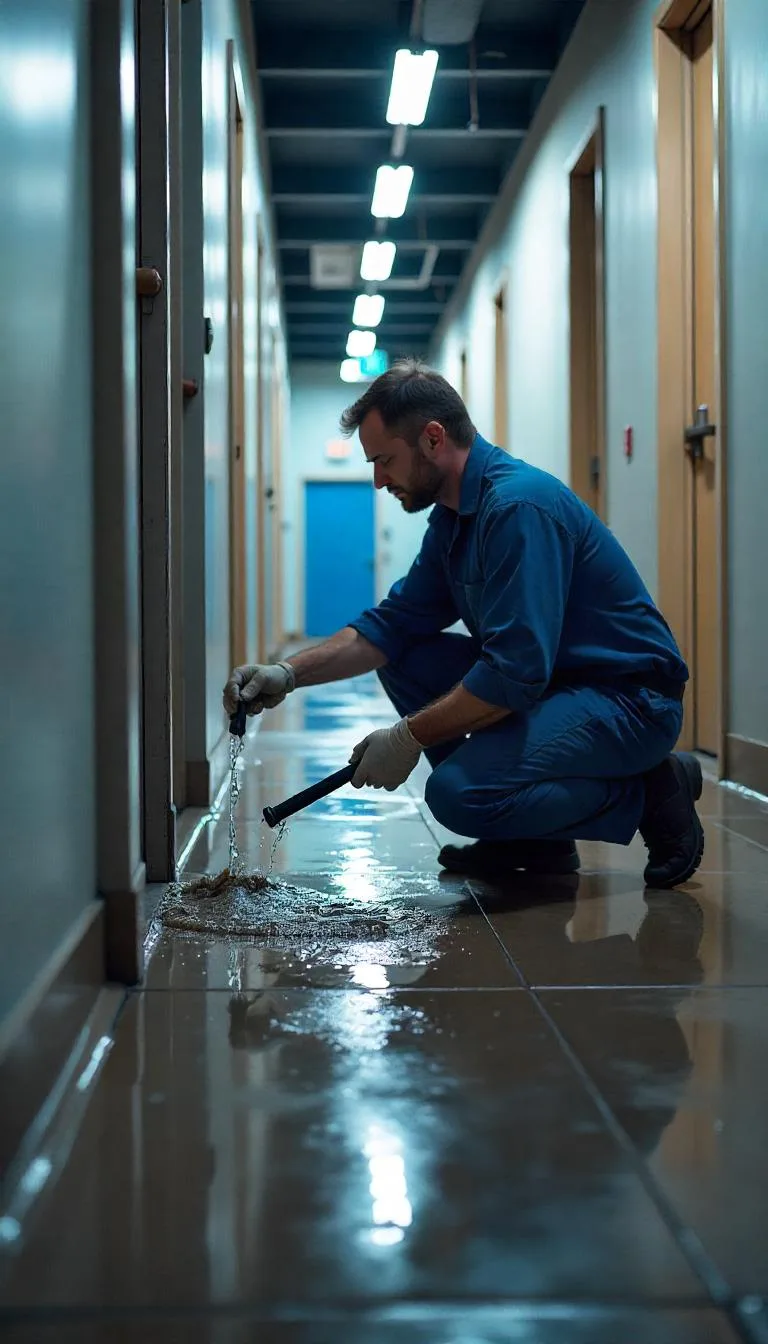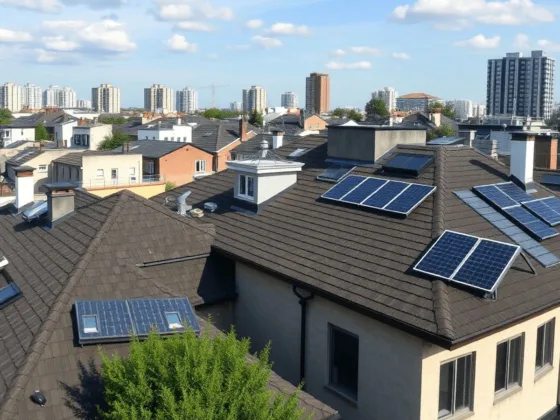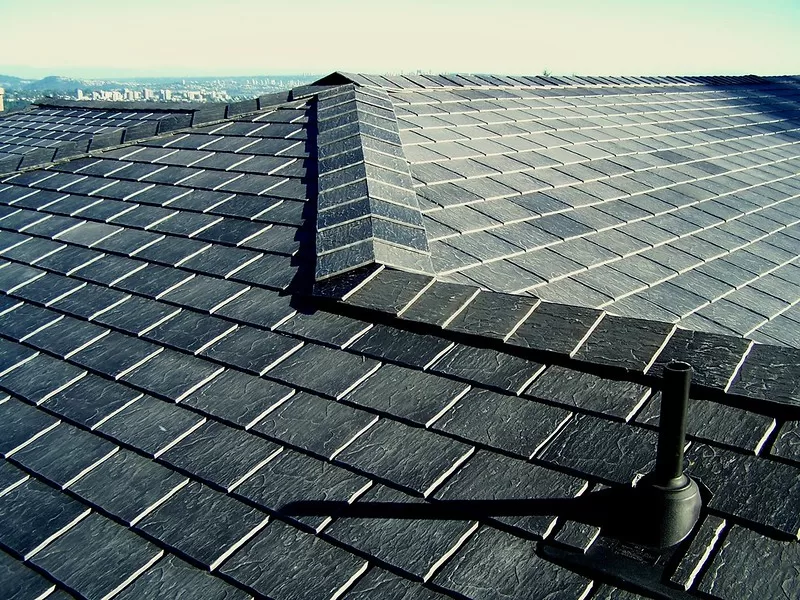If you’ve noticed water pooling around your HVAC system or dripping from your AC unit, you’re right to be concerned. While HVAC systems are designed to pull moisture from the air, that water should exit cleanly through a drain, not end up on your floor or ceiling.
The tricky part? A little water in the right spot can be completely normal, but the wrong kind of leak could signal a serious issue. Knowing what’s normal – and what’s not – can help you catch problems early and avoid major damage down the line.
When It’s Normal for an AC to Leak Water – and When It’s Not
It’s normal for your AC to produce moisture – it pulls humidity from indoor air as it cools. That moisture usually drains outside via the condensate line. Think of it like a sealed water bottle: moisture can form, but it shouldn’t leak unless something’s wrong.
A bit of water outside near the drain pipe is fine. But visible water pooling inside your home or dripping from the unit is a red flag. Even a “small” leak is your system’s way of saying something’s wrong. Ignore it, and it could lead to mold, ceiling damage, or a burned-out system.
Common Reasons Your AC Is Leaking Water Indoors
The #1 culprit is a clogged condensate drain line. If you have an older unit, it might be a sign of a cracked or rusted drain pan. Frozen evaporator coils, usually tied to airflow or refrigerant problems, might cause the same issue, and poor insulation on refrigerant lines can lead to excess condensation. Even a simple dirty air filter can make your AC leak.
Overall, most leaks trace back to one of three root causes: neglected maintenance (dirty filters, full drain pans, clogged lines aka. “I forgot” problems), design flaws (poor install angle, undersized drain lines, no secondary pan), deeper system issues (frozen coils, low refrigerant, insulation failure).
Clogged AC Drain Line: A Leading Cause of Water Leaks
When the drain line gets clogged with algae, dirt, or mold, water has nowhere to go. So it backs up and spills into your home. In some cases, your system may shut off completely (a built-in safety feature).
What to check: If your AC is leaking and you hear gurgling or see water near the indoor unit, the drain line is a prime suspect. You can sometimes unclog it with a wet/dry vacuum at the outdoor drain pipe, but proceed with caution.
The real issue might be upstream: mold in the drain pan, poor pitch in the line, or airflow problems creating excess moisture. The right move will be the installation of a float switch. It shuts off your system if water backs up, saving your drywall and wallet in the process.

How a Dirty Air Filter Can Lead to AC Water Leaks
A clogged filter restricts airflow, which can make your evaporator coil freeze up. When that ice melts, it overwhelms the drain system, and water spills over. So if you notice both water leaks and weak airflow from vents, start with the air filter. It’s a cheap fix and often the fastest way to stop a leak.
But filters aren’t the only thing affecting airflow – dust and debris buildup in your ductwork can also reduce circulation and force your HVAC system to work harder than it should.
If your home hasn’t had air duct cleaning in a few years (or ever), it might be time. Clean ducts improve airflow, reduce strain on your system, and help prevent problems like coil freezing and short cycling.
Low Refrigerant Levels and Their Role in AC Leaks
Low refrigerant reduces pressure in the system, which can cause the evaporator coil to get too cold and freeze over. Then, when the ice melts, you get a mini flood.
If your system is low on refrigerant, it either wasn’t charged properly or there’s a leak. Refrigerant doesn’t get used up like gas in a car – it stays sealed in the system. Topping it off is a band-aid, not a solution. You need tech to find and fix the leak.
Leaking Water Around the Air Handler or AC Unit Base? Here’s Why
This usually means the drain pan is overflowing or cracked, or the unit is out of level. Water naturally collects at the lowest point, so a leak “from the bottom” often tells you the whole drainage system needs a once-over. Shine a flashlight into the air handler to check the pan. If it’s full of water or rusty, that’s your starting point.
In homes where the air handler is in an attic or closet, this is also where you find out if the installer cut corners – no safety pan, no emergency shutoff, no insulation. If the leak starts here, assume it’s been building for a while.
Poor Installation Can Also Cause Your AC to Leak Water
Improperly installed units can suffer from poor drainage angle (condensate can’t flow properly), undersized or uninsulated drain lines, no secondary drain pan (a code violation in many places), inadequate sealing, or ductwork that stresses the system.
A good system with a bad installation will act up from day one, and leaks are often the first symptom. And yes, a poor installation doesn’t just cause leaks. It makes your system more likely to fail early.
What You Can Check Before Calling an HVAC Technician
Shut off the system. It prevents further damage and helps coils thaw if frozen. And replace the air filter (especially if it’s more than 1–2 months old). Inspect the drain pan with a flashlight.
Vacuum the drain line from outside if it’s accessible. If it’s dry when the AC is running, something’s blocked. Check your thermostat settings – low fan speeds can contribute to freezing.
Do not open up sealed components or attempt refrigerant work – those are jobs for licensed pros!
When to Call a Professional for a Leaking AC Unit
If the leak is “new” and isolated, you’ve got 24–48 hours to troubleshoot. If water keeps pooling after DIY checks, you hear gurgling, see ice buildup, or lose cooling power, the unit turns off unexpectedly or trips a safety switch, you suspect low refrigerant (e.g. hissing sounds or weak cooling), your system is leaking from a spot you can’t easily inspect – call a pro.
Also, if you smell a musty or “swampy” odor from the drain line or if there is water on the ceiling or wall, no doubt, call.
FAQs
An AC can leak water inside your home due to several reasons, including a clogged drain line, a damaged or rusted drain pan, or low refrigerant levels, causing the evaporator coil to freeze and then thaw, leading to excess water.
To prevent your AC from leaking water, ensure regular maintenance, including cleaning the drain line, checking the drain pan for damage, replacing the air filter regularly, and scheduling professional inspections at least once a year.
While a small amount of water leakage can be normal, excessive leaking can indicate serious issues such as a malfunctioning pump, a refrigerant leak, or significant blockages. It’s advisable to consult a professional technician if you notice substantial leakage.
Some minor issues, like clearing a clogged drain line or changing an air filter, can be fixed by homeowners. However, for more complex problems, such as refrigerant leaks or significant mechanical failures, it’s best to call a professional HVAC technician.
If your AC starts leaking water, first turn off the unit to prevent further damage. Check for simple issues like a clogged drain line or a full drain pan. If these do not resolve the issue, contact a professional technician for a thorough evaluation and repair.










